|
On the Saturday of Father’s Day Weekend, The Hope House and Gardens were open to Voices for Earth Justice friends and family for a picnic and permeable pavement demonstration. The educational program addressed information concerning water resources and management.
EcoGranite’s David and Maggie Popp organized and gave a presentation about their granite product, which included an example of the granite permeable pavement that they sell. All of the granite and binding in EcoGranite's products is made of recycled materials. This permeable pavement is a sustainable, green alternative to impermeable concrete paving. This allows stormwater to slowly filter through and return to the ground. While water cycled through the filtration system demonstration, David Popp spoke on his area expertise: how water management systems function (particularly, Michigan water management). He covered the interconnectedness of water systems, specifics regarding permeable and impermeable surfaces in Detroit, and provided options regarding how to save money on stormwater billing through installing permeable surfaces. The wastewater system in Detroit is a combined stormwater and sewer system. Therefore, the water that hits impermeable pavement—that could be infiltrated and returned to the groundwater system if it hit a permeable or porous pavement—flows into the drainage system and is treated as sewage. Popp also noted that sewage must only be treated because humans have added water to it. The engaging presentation resulted in the audience having several questions. Many questions related to the cost of installing an EcoGranite surface. While Popp noted that it is quite expensive, there are resources from the City of Detroit that supplement non-profit, faith-based, and business owners who would like to choose this environmentally friendly paving. The City of Detroit is allocating $5 million dollars to install Green Water Infrastructure for non-residential property owners. If you are a resident, there are a few small steps that you can take to conserve water if you are not able to afford installing impermeable pavement: 1. The Three Hour Test: -Check your house for leaks by checking your water meter, turning off and stopping water usage for three hours, and checking your meter again. If you the number goes up, then you have a leak. 2. Don’t litter! : -By picking up trash, you can keep it from flowing into our water systems and polluting them. 3. Cut your shower short: -Shortening your shower short by a minute or two, you will save up to 150 gallons of water per month.
1 Comment
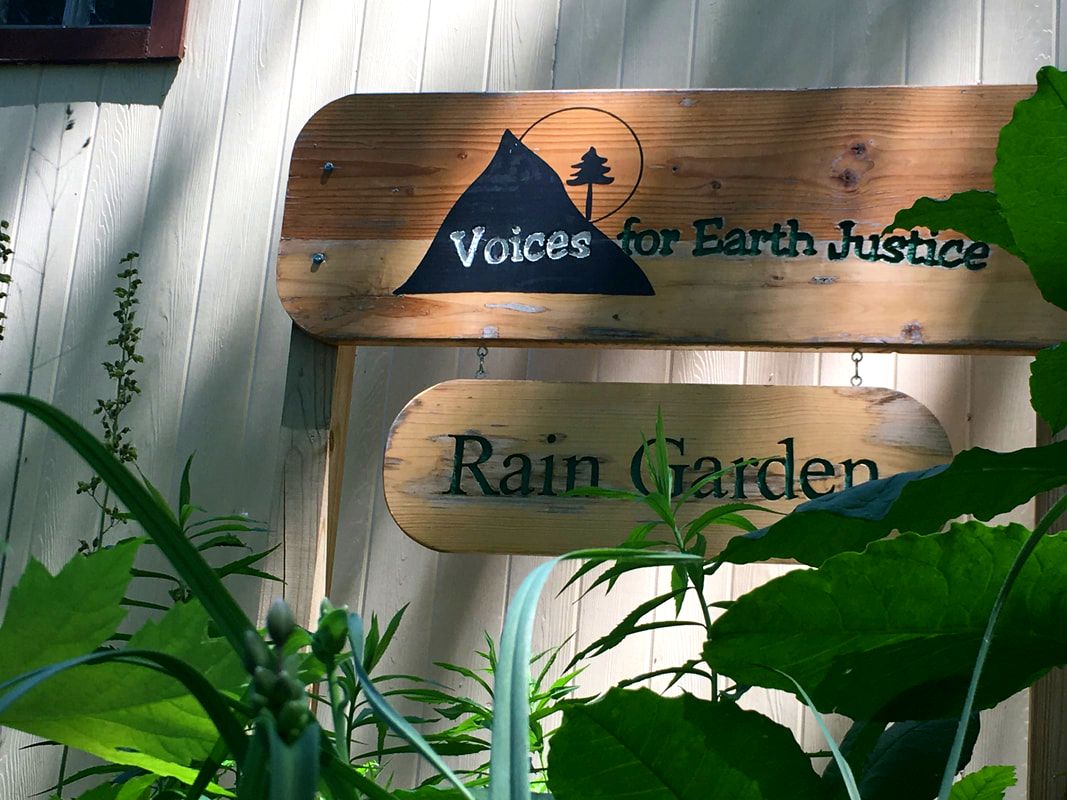 Chloe reflects on her second week at VEJ, and she notes her progress with her research project. My community placement is with Voices for Earth Justice. VEJ is an interfaith organization, focused on environmental activism. They own property in the Brightmoor neighborhood where they manage Hope House and Garden. VEJ has been involved in many different projects and campaigns since their inception in the early 2000s. I’m so excited to be working with this non-profit because I really love thinking about the intersection of faith and environmentalism. VEJ believes that faith, no matter what kind, and a connection to nature leads to motivation to preserve and protect the earth. The prefer motivating change through these connections, rather than focusing on what is wrong in the world. My summer research project for VEJ has to do with the mission of the entire organization, which is in a time of transition. My task is to determine exactly what role Voices for Earth Justice has in the community of Brightmoor. Being a small organization, it is important for us to find a specific niche that we can fill really well. I will be conducting interviews with past and present members of VEJ, as well as speaking with community members. I’m excited for the opportunity to learn about the Brightmoor community and learn how to best fit into their landscape. My first week went really well. Everyone in the office has been welcoming, and I’ve had a really fun time at the Hope House Garden. It’s nice to be able to work outside twice a week to break up the office time. I’m so excited to continue to learn from my community placement. 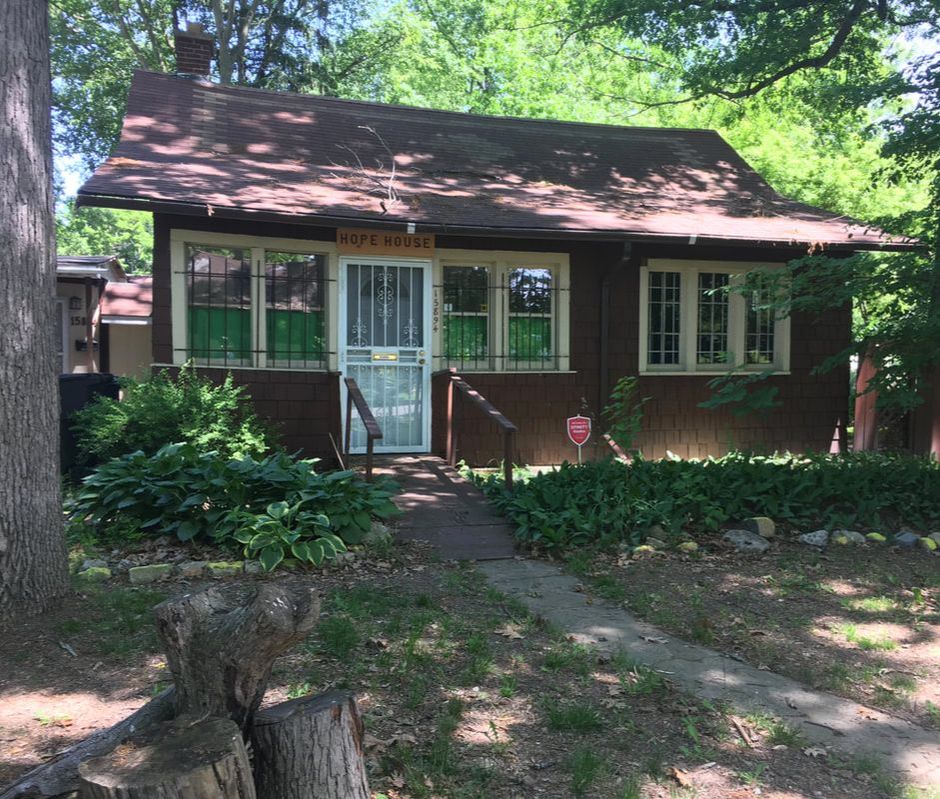 Julia has finished her first week at VEJ. Here are her reflections: Walking into the gardens on a bright morning, I found a place of wonder. The sky-scraping trees in the backyard, raised beds with growing vegetables, and a house full of art supplies and gardening materials sang sweet songs to my heart. It was love at first sight. The gardens, Hope House, and backyard sparked memories of places that have previously touched and changed my heart. Further, the people that I have met have expressed generosity and hospitality that reminds me so much of some friends of mine in Salyersville, Kentucky. In both places, I have been welcomed, even as a stranger and an outsider. In both places, stories are thick with layers. In both places, people have graced me with the gift and opportunity to share time with them. On my first day at VEJ, I met Abdul, a neighbor a few doors down. He had stopped over to say hello, and ended up fixing the stereo that I was tinkering with to listen to some tunes. His children pattering in the door behind him, peeked at me with curiosity. The warmth in the words and in the fixing of the stereo was tremendous. Abdul and his family made me feel welcome. These neighbors have a wisdom that I can learn from—and it is clear they possess a genuine connection to this place. This sacred space is magical because of those that live and work here. This place has a story—a story rooted in the work of Adrian Dominican Sisters, supportive friends, and kind neighbors. As I have been settling into my work, I have sifted through the history of VEJ, housed in a large stack of binders, and I have heard stories about many of my predecessors’ endeavors. It is clear that there has been much work and many relationships built previous to my presence at VEJ. I see all of my future work as that which is built upon the foundation of those who have come before me. I am so excited to be a part of such a relationally rich story. I have already seen and felt that this place draws people to it and that it is transformative. While there are weeds to pull, cleaning to be done, and plenty of upkeep and love needed, Voices for Earth Justice seems to have a spirit of holiness. This is a sacred place. This is holy ground. And I feel honored to be called to contribute to caring for it. What do we mean by "interfaith"?
For a lot of people, that word is "loaded." They wonder if being part of what we do at Voices for Earth Justice means they have to give up their most deeply-held beliefs. To other people, being "interfaith" may seem like a way to avoid making a choice. It's a wishy-washy way of being "faith-based" without having to do much of the "faith" part. And to a few people, "interfaith" seems like a wolf in sheep's clothing--a scheme by what they think of as "fringe" religions to chip away at "mainstream" religions. When an organization like VEJ uses a loaded word like "interfaith," it is important to be clear about what we mean when we use it. Webster's dictionary defines "interfaith" as involving people of different faiths or religions. You might ask: What does Webster mean by the word "involving?" Flip a page or two in the dictionary and you find that "involve" means to "engage as a participant." So, then, when we say that VEJ is "interfaith," we mean that people of different faiths or religions are participating in what we are about and what we do. So, what are we about? What do we do? Our name--Voices for Earth Justice--gives the simplest answer: We are about "Earth justice." To me, that means giving Earth as much care and grace as Earth gives to us. It means helping human beings find the right balance with creation. We use our voices (we do something) to bring about that Earth justice. So, then, if Earth justice is what we are about and using our voices is what we do, where does "interfaith" come in? The simple answer has two parts. First, all people--regardless of their faith or religion--are born on Earth and depend on Earth to live and to live well. When one group of people abuses or exploits Earth, it not only affects Earth, but all other groups of people who live here. So, we have reasons to help each other care for Earth. Our lives and well-being depend on it. Second, people of faith--any faith--share a common belief that we are made by love, for love, to love. To be human is to be created for the purpose of loving all of creation. This is the foundation of all faiths. So, then, nothing could be more essential and true to faith--any faith--than Earth justice. For that reason, a mission like ours cannot be exclusive; it must be inclusive of all whose faith leads them care for creation. We share in the goodness and richness of Earth and therefore we share in the work of caring for Earth. Here, I'd like to make a few points about what that looks like. First, it is rare in our world for people of different faiths to come together. More often, we are avoiding each other or openly fighting each other. Whenever we can find something that unites us, we need to make the most of it. Earth justice is one of those things that all faiths have in common and therefore can give us ground on which to stand together. Indeed, we cannot hope to bring about Earth justice without each other. We are always going to share this planet and therefore we must find ways to care for it together. Second, it is very hard for people of different faiths to get along. If it were easy, more people would be doing it! Faith is one of those things that is so deep, so essential to our personal identities, that fighting to protect what we believe is reflexive. As human beings, our brains want to make things as simple as possible--to break all things down into "black and white." This is our default setting. We need to admit how disorienting and uncomfortable it is to hang out in the interfaith "gray area." Interfaith relationships take great care and a lot of intention. We need to be up front about this so that we are not hard on each other or on ourselves when it gets difficult. Third, while bringing people of different faiths together is something we'd all like to do, most of us don't know how to do it. It is one thing to wish something, it is another thing to make the wish come true. There are mission organizations that exist for the sole purpose of building interfaith partnerships and they are good at what they do. However, they often struggle to engage the mainstream. Most people feel like practicing their own faith is hard enough without adding the difficultly of trying to learn someone else's faith. Very few immediate economic or social incentives exist in life to move people of one faith toward people of another. Fourth, research has shown that the most effective way to bring people of different belief systems together is to make something other than their belief systems their primary focus. Doing something constructive together is the most effective way to help people of different faiths bond. In working on something side by side, people of different faiths don't see each other as "different faiths," but as fellow human beings. They share stories about their families and their lives. They swap skills and talents. They see that they can do something constructive together as people. As rapport and trust build up, a "safe space" grows between them that allows mutual curiosity in. So, then, what do these points mean for VEJ? I sum it up like this: Earth justice is what we do. Belief in a Creator is why we do it. Interfaith is how we do it. People whose faith leads them to believe in a Creator believe they are called by that Creator to care for creation. VEJ exists to serve those people; to give them access to activities, information, and relationships to help them do Earth justice in their communities and in their lives. One thing that we build into that work is making a safe place for people of different faiths to celebrate, discover, and practice Earth justice side by side. In doing so, they can discover each other and learn to admire, enjoy, and trust one another. You may decide this isn't for you. If so, that's OK. We pray a blessing on you as you go the way you need to go in your life. We're not the kind of people who believe that you must be part of us to support what we support in the world. It takes all kinds of people in all kinds of places. But if relationships with people who are very different from you is something you would like to be part of your Earth justice practice, know that you have a place with us. Earth justice is what we do. Belief in a Creator is why we do it. Interfaith is how we do it. Your comments and questions are always welcome. When we say "Voices," we really mean "conversations." Please share in the comment section below or email me at bt@voices4earth.org. Grace and peace! Chloe HypesChloe Hypes is our full-time summer research intern as part of the University of Michigan's Detroit Community-Based Research Project. Chloe is a junior environmental science major from Stockbridge, Michigan. This week, Chloe's program leader at U-M asked her to write a letter to herself and post it online. Enjoy! 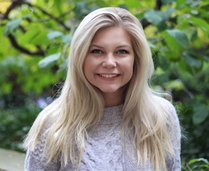 Hi, Chloe! I’m so excited that you have the opportunity to live in a new city and work with an organization that aligns so well with your studies and values. You are excited for all the opportunities to learn and grow this summer, inside and outside of your internship. There’s a few things I really want you to keep in mind: I want you to take every opportunity to learn from the Detroit community. This is important because of where you’re from. You don’t always have the opportunity to learn about new places, and, coming from such a small hometown, it’s important to always take every opportunity to learn from a new place. Also, I think it’s really important that you know more about the community in which you are working and trying to make a difference. You already have the knowledge and tools to make a difference using sustainability as a vehicle, but you need to learn how to grow into the space available in the community first. It’s so important to be respectful of the community you are placing yourself in, and this will be a valuable skill for your future career. My current perception of Detroit is that it has a lot of history and culture as well as being a fun place to explore. I’m so excited to learn all that I can about this city, and hopefully find my own place within it. I’m also excited to become closer with all the other people in the program. I hope you remember to take every opportunity to go out and explore, learn, and become friends with everyone you can. I’m excited for the challenges and opportunities you will face this summer, and I hope you grow through it. – Chloe This summer, the garden won't be the only thing growing at the corner of Greydale and Puritan streets.
Partnerships with Repair the World, Summer in the City, and Young Neighbors in Action will send hundreds of young people to learn and volunteer at Hope House & Gardens in June, July, and August. Youth volunteers will help build and care for the new demonstration garden and help spruce up Hope House and its grounds. "We're planning an 'extreme makeover' for both the garden and the house this summer," said VEJ executive director BT Irwin. "These kids are going to make it happen while learning things they never knew about the world and how it works. We're praying for this to be a life-changing experience for all of them." Alongside VEJ's programs, new Hope House & Gardens art program-in-residence Live Coal Gallery will host free summer art camps for children in the neighborhood. "The mission for Hope House & Gardens is not so much about growing food as it is about growing a community and people who care for Earth and each other," said Irwin. "We're really excited for all of these young people to take what they experience and learn back to their own communities. This is how VEJ makes an impact on the world." A campaign will launch in June to raise funds to pay for the building materials, supplies, and tools that will go into summer volunteer projects. VEJ is also looking for "hospitality volunteers" to provide and serve beverages and snacks and work in the safety station. To help out by making a donation or volunteering, please click one of the buttons below. 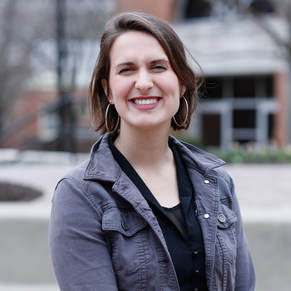 A partnership with Christ the King Service Corps is bringing Voices for Earth Justice its first full-time community relations director. Julia Hall, a 2018 graduate of the University of Dayton, will join the VEJ team in June. Christ the King Service Corps will cover most of Hall's salary and provide housing and transportation. Hall will live just a short bike ride from VEJ's Hope House & Gardens. "We are so thankful to Christ the King Service Corps for choosing Voices for Earth Justice as a partner," said VEJ executive director BT Irwin. "Having Julia full-time and living in the neighborhood will help us be more responsive to what our neighbors need and want from us." Hall will be responsible for most activities that enhance VEJ's relationships with people and places that are part of its mission:
At Dayton, Hall was an intern and volunteer at Mission of Mary, an organization similar to VEJ. She was also editor of an arts magazine and the student newspaper, an experience that will prepare her to take over all of VEJ's communications and media (like this website). She also participated in Dayton's Summer in Appalachia program, studied in Ireland, and was a leader of the River Stewards program. Look for an interview with Hall in an upcoming post. Over the last couple of years, VEJ has been building a large neighborhood garden at the corner of Greydale and Puritan streets on the border of Detroit's Brightmoor and Old Redford neighborhoods. L'Oreal Hawkes-Williams, a student at the University of Michigan, was an intern who worked two summers in the garden.
Fresh from her graduation from U-M in April 2018, L'Oreal is now VEJ's garden leader. In her new role, she is responsible for the care and cultivation of the garden. More important, she is responsible for how the garden makes a real difference to the ecology and people of Brightmoor and Old Redford. In addition to keeping track of what VEJ harvests from the garden in 2018, L'Oreal is also working to reach some other important "impact goals," such as:
The following is an interview in which L'Oreal shares more about herself and her plans for VEJ's garden program in 2018. How does it feel to be leading the garden program after being an intern the last couple of years? LH-W: It feels pretty good to have the opportunity to manage the garden program after interning the last few years. I just recently graduated from the University of Michigan and it is nice to be able to jump right into action. What is your passion and purpose in life and how does leading the garden program help you live those things out? LH-W: I'm passionate about a lot of things. To break it down into a few broad categories, I say I'm most passionate about environmental & social justice, life-long education and self sufficiency. Leading the garden program at VEJ is the perfect opportunity to practice all of those things in some aspect. I hope I can co-create a beautiful space with the Old Redford/Brightmoor community that will become an asset to the neighborhood. Why is it important for Voices for Earth Justice to have a garden? To make gardening a big part of its mission? LH_W: Our current food system is based on three crops: corn, soy and wheat. Massive mono-cultures of these crops disrupt ecosystem processes and harm our environment. The market is over-saturated with unhealthy processed foods that contribute to our nation's health crises. It is important for people to have as much agency over their lives as possible and learn how to exercise their right to fresh, healthy foods that they can can produce themselves. VEJ's mission to bring environmental awareness to the masses involves seeking out alternatives for people that will allow them to participate in repairing our world. Describe your plan and your vision for the garden in 2018. What about your plan/vision is different/new from what we've done before? LH-W: My plan is to establish a demonstration garden that will show different methods for growing, several intentional gathering spaces, as well as a new composting system. Utilizing permaculture principles, we're aiming to provide a space where people can get hands-on gardening education that promotes healthy living, self-reliance, and overall well-being. There will be signage to assist in the learning experience. Tell us a little more about what kind of "demonstrations" the garden will have. LH-W: We will highlight three different ways to grow food: Raised beds, Chinese beds, and Hugel beds. Signage will be in place to explain the methods. There will also be a pollinator box, mushroom patch, and tea/herb bed. What are those three kinds of beds you mentioned? LH-W: Raised garden beds are great for growing small plots of veggies and flowers. They keep pathway weeds from your garden soil, prevent soil compaction, provide good drainage, and serve as a barrier to pests such as slugs and snails. With Chinese beds, mounded soil drains more quickly and warms up earlier in spring than the surrounding soil, making earlier planting possible. Once the beds are created from soil amended with plenty of compost, no further tilling is necessary. Used for centuries in Eastern Europe and Germany, hugelkultur (in German hugelkultur translates roughly as “mound culture”) is a gardening and farming technique whereby woody debris (fallen branches and/or logs) are used as a resource. What is a pollinator box? LH-W: A pollinator box is a homemade bee house made from repurposed materials. What kind of help and resources do we need from friends of Voices for Earth Justice to realize your vision? LH-W: With this massive restructuring, we are in need of volunteers and tools. The plans are in place, we just need community support bring the dreams into reality. As well as volunteers, we need people to come and use the space! It is for the community. Help us to complete this transition so that we can be a a treasured resource for the Brightmoor community. Now that you know how VEJ's garden program will make a bigger difference in 2018, will you help? Click on a button below to donate or volunteer. 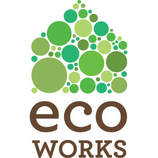 The Voices for Earth Justice staff team--soon to be two full-time and two part-time persons--recently moved into summer office space at EcoWorks Detroit. Not only will the EcoWorks office give the VEJ team a place to work, but it will make a big opportunity for cooperation and new ideas to blossom between the two organizations. "EcoWorks and VEJ have a lot in common in terms of what we're trying to accomplish in Detroit and in society," said VEJ's executive director, BT Irwin. "I'm hopeful that both organizations will get a lot out of our people working side-by-side each day." |
Categories
All
Archives
December 2021
|
Copyright © 2024 Voices for Earth Justice, nonprofit 501(c)(3). All Rights Reserved.
Mailing address: 15894 Greydale Street, Detroit, Michigan 48223 Email: info@voices4earth.org Phone: (313) 355-6042
Mailing address: 15894 Greydale Street, Detroit, Michigan 48223 Email: info@voices4earth.org Phone: (313) 355-6042

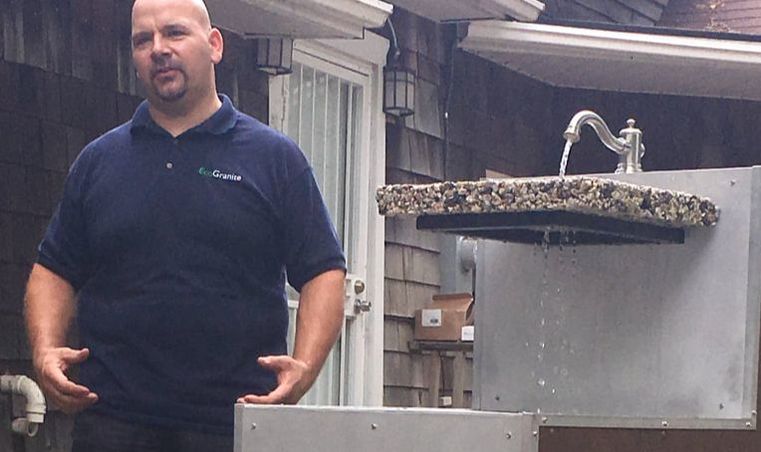
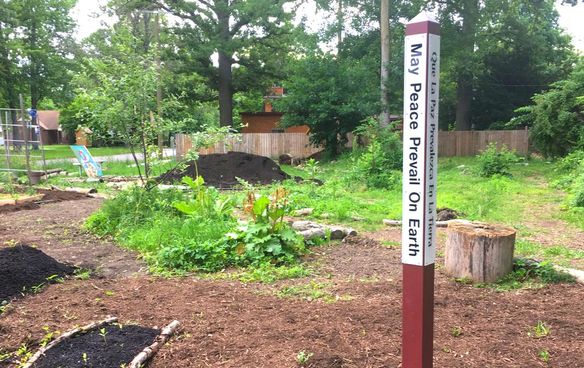
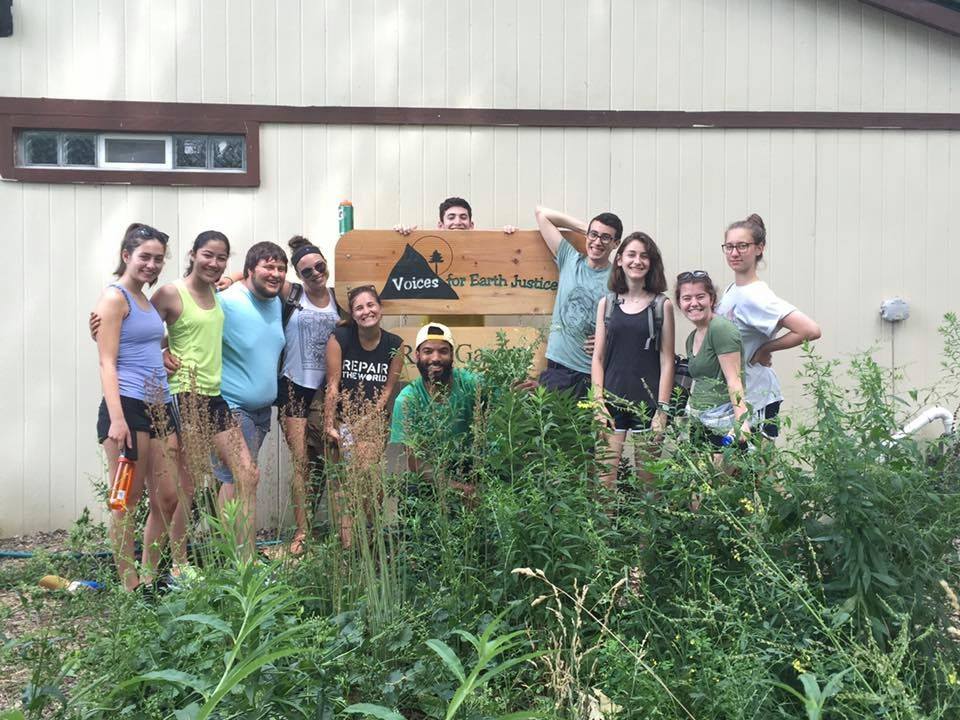
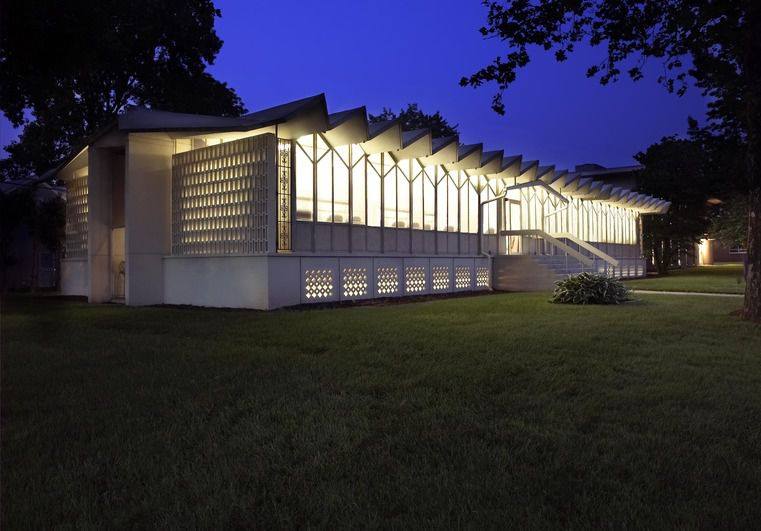
 RSS Feed
RSS Feed